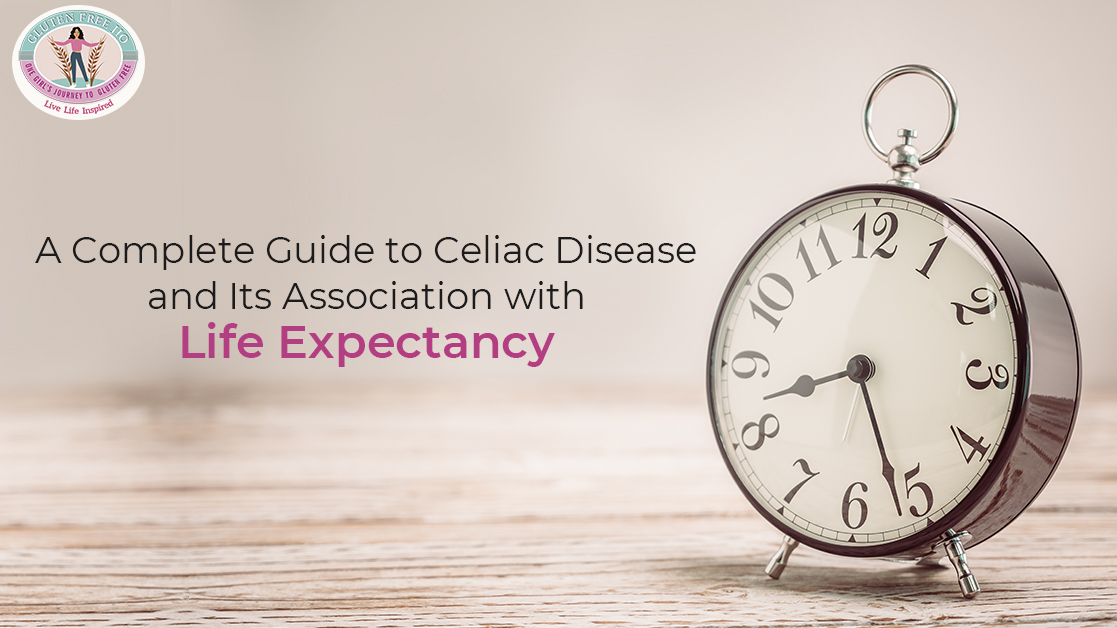A Complete Guide to Celiac Disease and Its Association with Life Expectancy

Before we delve deeper into the effects of celiac disease, it is important to understand what this condition really is. Celiac disease is a chronic autoimmune disorder that is triggered by the ingestion of gluten and occurs in people with a genetic predisposition.
Developments over the years have allowed researchers and doctors to learn quite a lot about the disease, including genetics and other risk factors. Results from some of these observations suggest that the link between celiacs and an increased risk of premature death and the condition, in general, has been underrepresented. One recent study revealed that there was a small but statistically significant rise in the mortality rate among those who choose to ignore the warning signs.
Effects Celiac Disease Can Have on Your Body
For the longest time, celiac disease was thought to be a pediatric gastrointestinal disorder associated with symptoms such as pain, diarrhea, constipation, and bloating, characterized by damage to the small intestine.
Thanks to the development of accurate blood tests and other large-scale screenings, celiac disease has been identified as a truly systemic disorder that can develop at any age and can affect almost every tissue or organ in your body. Some celiacs may experience severe joint pains, osteopenia, bone fractures, rash, or even psychological symptoms like anxiety and depression.
One known environmental trigger for celiac disease is gluten. Removing gluten from the diet of a celiac improves the symptoms, restores their blood tests to normal, and heals their small intestine.
Celiac Disease and Life Expectancy
The studies conducted on celiac disease and mortality have returned somewhat conflicting results, with some indicating an up to a twofold increase in mortality, while others show no increased risk at all. As if this uncertainty wasn’t enough, the mechanism by which celiac disease alters life expectancy has not been identified yet either. Many experts feel that it might partly be related to the development of osteopenia and bone fractures, chronic inflammation, complications from associated conditions such as type 1 diabetes, or, in more rare cases, intestinal lymphoma.
One of the most recent studies published in JAMA suggests a small, yet significant, increase in the risk of mortality in celiacs. One interesting trend they observed was that while all the age groups studied were at an increased risk of death, mortality was greater in those diagnosed between the ages of 8 and 39. This rise was related to cardiovascular disease, cancer, respiratory disease, and other unspecified causes through this study.
Mitigating the Risk through Dietary Changes and Routine Medical Care
This slight increase in mortality should not affect the ways in which we manage celiac disease, rather we should be using these findings to identify focus areas and work on reducing the risks involved.
For those of you who might not know, low intake of whole grains significantly increases the risk of cardiovascular diseases; thus, inadequate consumption of whole grains and fiber are key causes of the diseases and deaths worldwide. Understandably, the limitations of a gluten-free diet keep celiacs from most whole grains, but it is important to emphasize consuming a diet rich in gluten-free whole grains such as oats, quinoa, and amaranth.
Celiacs were also observed to be at an increased risk of death because of respiratory disease. To keep this in check, celiacs should talk to their doctors about pneumococcal vaccines as a part of routine care after diagnosis. It isn’t very common in many healthcare practices, which is why you ask your doctor about it.
Patients with celiac disease are advised to visit their physician yearly to get their gluten-free diet reviewed, undergo evaluation for other autoimmune conditions, and discuss the need for vitamin supplementation. Routine follow-up care, pneumococcal vaccination, and a diet rich in whole grains, fiber, fruits, and vegetables will help mitigate the risk.
 MY JOURNEY
MY JOURNEY About Me
About Me Early life
Early life Diagnosis
Diagnosis CELIAC DISEASE
CELIAC DISEASE Symptoms & Diagnosis
Symptoms & Diagnosis Treatment & Follow Up
Treatment & Follow Up GLUTEN - FREE LIVING
GLUTEN - FREE LIVING At Home
At Home At School
At School At Social Events
At Social Events
 Grocery Shopping
Grocery Shopping COMMUNITY OUTREACH
COMMUNITY OUTREACH Gluten Free Meetup
Gluten Free Meetup Workshops
Workshops Webinars
Webinars COVID-19 Camps By Gluten Free Jio
COVID-19 Camps By Gluten Free Jio  Mid Day Meal
Mid Day Meal Beyond Celiac
Beyond Celiac Real Stories of Celiac
Real Stories of Celiac RESOURCES
RESOURCES Restaurant Dining Cards
Restaurant Dining Cards Recipes
Recipes Gluten Free eBook
Gluten Free eBook Gluten Free Jio App
Gluten Free Jio App RECOGNITION
RECOGNITION TRAVEL DIARY
TRAVEL DIARY



